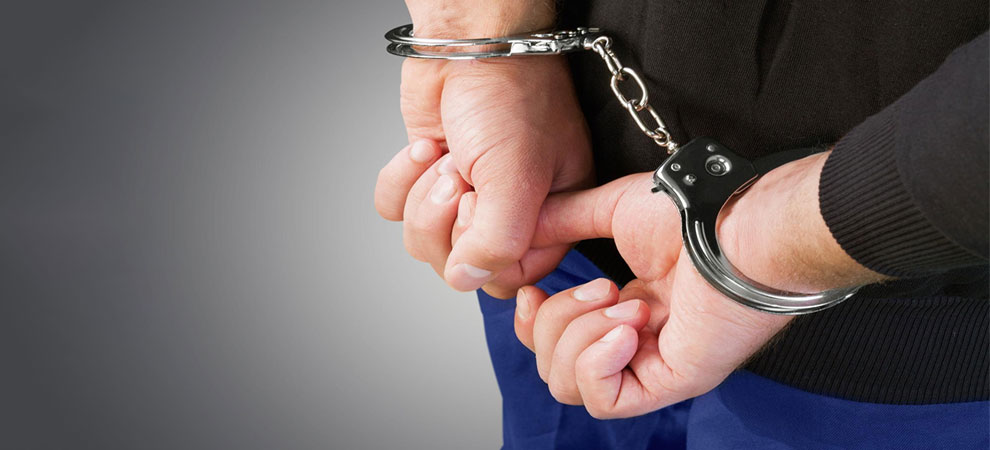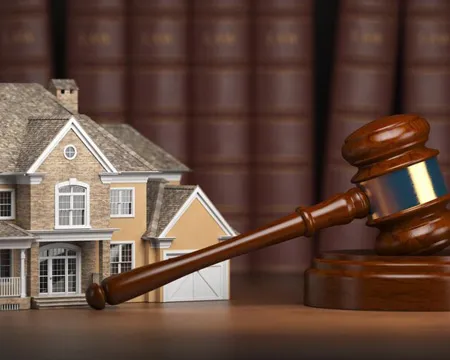Hickory Criminal Defense Attorney
Hickory Criminal Defense Lawyer

If you have been accused of a crime, no matter what it is, you need to take informed action to protect your rights. Regardless of how you ended up in this situation, if you do not have an effective defense strategy, you could be looking at incredible financial strain and time in jail or prison. You should get in touch with a Hickory criminal defense attorney as soon as you can if you want a strong chance of a positive outcome.
At Cody Law Firm, we know how hard this time can be. Getting arrested can be terrifying, and you might feel like you have no person to turn to, but this is not the case. We have years of experience standing up for Hickory residents who are facing criminal charges, and we can give you and your loved ones compassionate support in this trying time.
What Are the Penalties for Crimes in Hickory?
If you are facing criminal charges in Hickory, NC, it is important that you understand what consequences you might be facing. Depending on your circumstances, the right Hickory criminal defense attorney can work to negotiate your sentence. Without a lawyer, this might not be possible.
The punishments you will be looking at will depend on the precise nature of the crime you have been accused of. For instance, if you are charged for the first time with a DWI/DUI (driving under the influence) and no one was hurt as a result of your actions, your punishments will be lighter than if you have had previous offenses. The consequences you might face for other crimes include:
Drug Trafficking
Drug trafficking is considered a felony offense in Hickory. If you have been accused of drug trafficking or any other drug offenses in Hickory, then you should be prepared to face punishments that correspond with the amount of drugs you possessed and what kind of drugs they were. The consequences that you might be looking at include spending between 25 months to 18 years in prison and paying up to $250,000 in monetary fines.
White Collar Crimes
If you are charged with any sort of non-violent crime that was motivated by personal financial gain, you are being accused of a white collar crime. For instance, all of the following criminal acts are considered white collar crimes in Hickory.
- Fraud: When you deceive people for your personal financial gain. For example, credit card fraud, tax fraud, and insurance frauds are all examples.
- Money Laundering: When you obtain money illegally and then make it seem like you obtained it through legal means.
- Tax Evasion: If you lie on your taxes by means like underreporting your income, failing to report assets, and more.
- Forgery: If you create fake documents or fake someone’s signature to deceive others for financial gain.
- Embezzlement: If you use funds in an inappropriate way, such as using your business funds for your personal use.
If you are convicted of any of the above white collar crimes, you can expect to look at harsh penalties. For instance, you could be looking at a 3–12-month prison sentence if your crime involved less than $100,000. On the other hand, if your situation involved more than $100,000, you could be looking at 15 years in jail.
Violent Crimes
All violent crimes are taken very seriously in Hickory. For example, if you are accused of gun crimes, battery, assault, murder, domestic violence, or physical child abuse, you can expect to be up against life-changing punishments.
The sentencing process can be complicated, and you might be in for a complicated legal battle while defending yourself. If you are convicted, you can expect to face anywhere from 3 months in prison for a Class I felony to life without parole, depending on the severity of your case.
DUIs
If you are found to be driving your vehicle with a blood alcohol content (BAC) of 0.08% or above, you can expect to be charged with a DUI. Your punishment will depend on your history with these offenses, how high your BAC was, and whether your behavior resulted in property damage, injury to another person, or wrongful death. It should be noted that if you are under 21, any BAC over 0.00 can result in criminal charges, as it is illegal to drink unless you are 21 years old or above.
Sex Crimes
Any action involving sexual actions that are not consensual or involve minors can result in criminal charges. For instance, common sex crimes that you might find yourself facing include rape, indecent exposure, possession of child pornography, and human trafficking.
If you have been accused of any sort of sex crime, you will find it is an incredibly complicated process of trying to defend your case, and you will need a qualified Hickory criminal defense attorney to assist you.
Theft
Stealing any property that does not belong to you is illegal. You can expect the punishments you face for theft in Hickory to be based on the value of what you were found guilty of stealing.
For example, if the goods were worth less than $1,000, you can expect to face between 1 and 45 days in jail. On the other hand, if the goods that you were found guilty of stealing were worth more than $1,000 or involved breaking and entering, a firearm, or if you had more than four prior larceny convictions, you can face 4 to 36 months in prison.
What Are My Rights as a Criminal Defendant?
It’s important to note that criminal defendants have rights under the Constitution. They are as follows:
-
- Right to Remain Silent: This is usually stated to a defendant during their arrest as they are read their Miranda rights. In a criminal case, the defendant is protected from testifying against themselves. They cannot be forced to talk. The exception to this is in a civil case, where a defendant may be forced to testify.
- Right to a Trial by Jury: In a criminal case, jurors are selected at random from members of the community. There is a process in place to eliminate jurors who would be biased in the case. An attorney may also eliminate jurors if they believe that the potential juror would be unsympathetic.When ruling, a jury must be unanimous, meaning that all members must agree on the outcome. If they cannot agree, it will be considered a “hung jury.” In this case, the defendant is free to leave unless the prosecutor decides to retry the case.
- Right to Confront a Witness: Defendants have a right to cross-examine a witness. Usually, this is done through the defendant’s lawyer, who can ask the witness questions in court.Typically, a prosecutor cannot use “hearsay” statements as proof of guilt. There are, however, special instances where a hearsay statement may be admissible, such as if the source of the hearsay is a co-conspirator. These exceptions depend on the circumstances surrounding the case.
- Right to a Speedy Trial: While defendants have a right to a speedy trial, there is no standard timeframe that this covers. This is determined at a judge’s discretion, and they will take many factors into consideration, such as the length and reason behind the delay and the inconvenience it may be causing for the defendant.
- Right to a Public Trial: This right is important, as it helps the trial and outcome be less biased. The balance of people in the courtroom, such as relatives and everyday citizens, helps ensure that everyone’s rights are being upheld in court. There are certain circumstances where a case may be closed to the public, such as those involving children.
- Right to Avoid Being Subjected to Double Jeopardy: Double jeopardy is when someone is charged with the same crime twice. There are two facts to note about this right:
- A person can be charged for the same crime twice if the crime violates state laws and federal laws. They will have to appear in court on both the state and federal levels.
- This law applies to criminal trials. However, if aspects of the crime fall under civil jurisdiction, they will have to go to trial in civil court as well.
- Right to an Attorney: All defendants have the right to be represented by a lawyer. If they cannot afford one, they can have one appointed for them at the government’s expense.
- Right to Adequate Representation: This does not mean that every lawyer is perfect, nor does it guarantee that a defendant will win. This does, however, enable a defendant to have an attorney do a good job while representing them.
What Is the Process of a Criminal Case?
Most criminal cases will follow this process:
-
-
- Law enforcement will begin an investigation.
- Once probable cause is determined or an arrest warrant is issued, police will make an arrest.
- The police will submit evidence to the prosecutors, who will determine what criminal charges to file.
- After their arrest, defendants will appear in court for arraignments, or initial hearings, where they will receive details about the charges against them and declare their plea.
- Next, a process called “discovery” occurs, where the defense and the prosecutors will share their sides of the case, including evidence and witness statements.
- The prosecution and defense will enter a plea bargain to see if they can resolve the matter without going to trial.
- If a defendant pleads not guilty, they are allowed to have a preliminary hearing. The judge will decide if there is probable cause or not. If so, the case goes to trial. If not, the case is dismissed.
- The case will go to trial.
- After the trial, the defendant will be sentenced if the jury finds them guilty or the defendant pleads guilty.
- Even after a conviction, a defendant can file an appeal to another court in an attempt to change the ruling.
-
Why Do You Need a Hickory Criminal Defense Attorney?
A criminal defense attorney is a lawyer who specializes in criminal law. Your lawyer will have extensive experience standing up for people who have been accused of the same crimes and will know how to gracefully navigate Hickory’s complicated legal system.
Without an attorney on your side, you will not have access to the knowledge and resources that are required for a convincing, effective defense strategy.
Once you consult with your criminal defense attorney, they will dive right into determining what defense strategy is right for you. They can then help you address all aspects of the legal process ahead of you, such as:
Collecting Evidence
In order to prove to the Hickory court that you did not commit the crime, you will need to have strong evidence that supports your argument that you are not guilty. It can be tricky to secure this evidence without an experienced criminal defense lawyer, as you might not know what kind of evidence can effectively support your case or how to gather that evidence. For example, your lawyer might use evidence such as:
-
-
- Witness Testimonies: Eyewitness accounts can be incredibly beneficial to your case. For instance, they can help your lawyer prove that you were in a different place at the time of the crime, that someone else committed the crime, that what you were being accused of was completely accidental, and more.
- Police Reports: Depending on the crime you are being accused of, you might find that you might benefit from your criminal defense lawyer reviewing police reports. For example, if you were pulled over for drunk driving, but your breathalyzer test was not administered properly, your lawyer can point this out to the court.
- Medical Records: Your medical records can be a priceless asset for many defense strategies. For instance, if you were taking prescription medication that interfered with your breathalyzer test, you could strengthen your defense strategy against a DUI charge.
- Character References: Your lawyer might use character references to help provide context for your situation or help highlight your humanity and your responsibility.
- Photographic and Audio Evidence: If there are any photos or recordings that can help show that you were not involved with the crime, your lawyer will be sure to utilize these as a part of your defense strategy.
-
Negotiating Sentencing
In the event that you plead guilty or you are found guilty by the court, your lawyer can still help with trying to secure a positive outcome. By drawing on evidence like character references and records of your accomplishments, your lawyer can work as hard as possible to advocate for your future.
Providing Legal Counsel
You might feel like you are drowning as you try to navigate the confusing Hickory legal system. From the very first time you meet, your lawyer can help you understand what legal processes you will have to go through and how to navigate them. They can also provide you with personalized advice tailored to your unique circumstances.
Handling Appeals
When you go through a tense legal battle, it can be incredibly disheartening to see the court not make a decision that is in your favor. However, your lawyer can immediately get to filing appeals if you want another chance at a positive outcome.
FAQs
Q: What Are the Defense Laws in North Carolina?
A: Self-defense is used in many criminal cases. North Carolina has a stand-your-ground law, meaning that a person is allowed to use force to defend themselves or their household against an attack. Deadly force is allowed if it is reasonably believed that the force will prevent severe physical harm or death to themselves or another person.
Q: How Much Is a Defense Attorney in NC?
A: There are several factors that go into the cost of a criminal defense attorney, such as the lawyer’s experience, the details of the case, and the attorney’s pay structure. The average hourly rate for a criminal defense attorney is $250, within a range of between $100 and $400 per hour.
Q: What Is the Three Strikes Law in North Carolina?
A: The three strikes law in North Carolina is also called the “habitual felon” law. Under this law, if a person has been convicted three or more times for the same crime, they will face harsher penalties. For instance, if a person is repeatedly convicted of fraud, they will face more extreme penalties after the third offense. If a person has multiple felonies before the age of 18, only one of them will count toward the three-strike rule.
Q: How Many Felonies Can You Have in NC?
A: Under the habitual felon law, also known as the three strikes law, a person can have three felonies before they begin to receive harsher penalties for their offense. If a person has been considered a habitual felon, it should not be mentioned in court so as not to sway the jury’s decision. Habitual felon status is determined by the number of court appearances, not convictions (in case a person was convicted of multiple felonies in one case).
Contact a Committed Hickory Criminal Defense Attorney Today
When you are accused of any sort of crime in Hickory, be it a felony or a misdemeanor, you cannot afford to waste any time in seeking supportive legal advice. Your future and the future of your loved ones is at stake.
At Cody Law Firm, we understand how stressful and confusing this time can be, and we want to give you the compassionate, individualized support you deserve. Contact us today to learn more.






